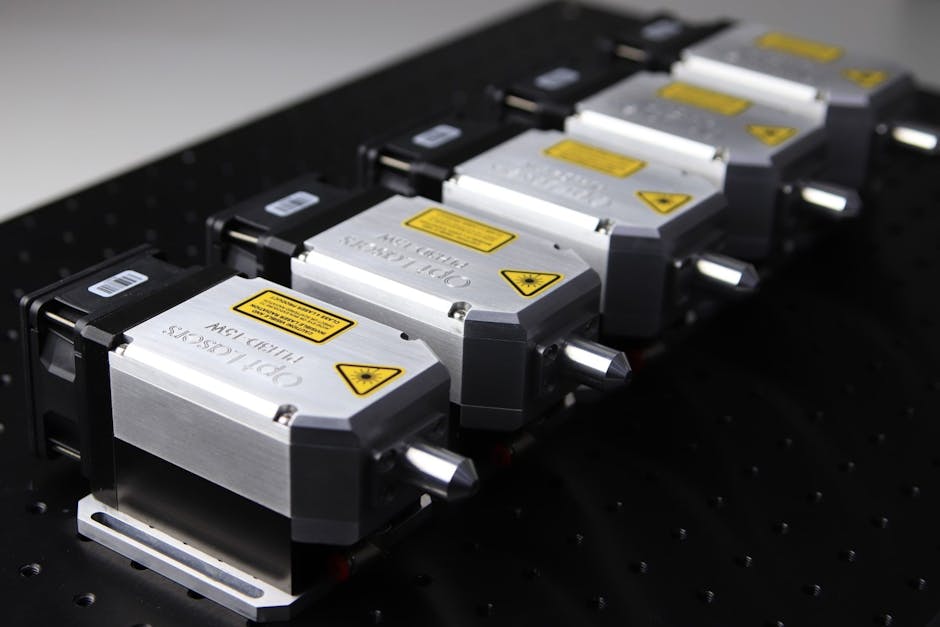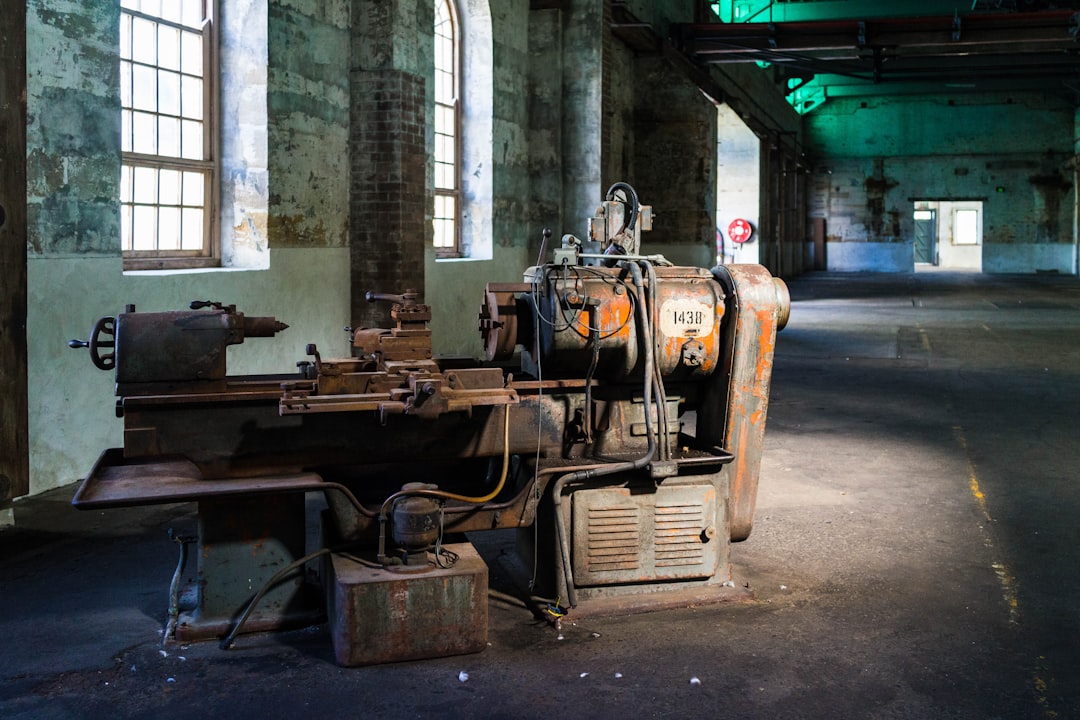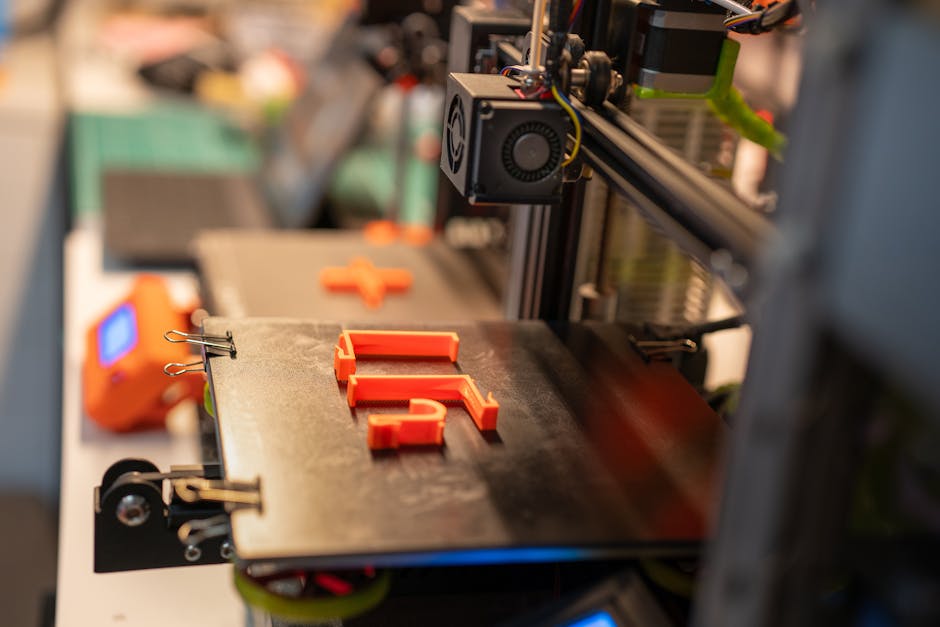Precision parts machining is vital for any project that demands high-level accuracy and consistency in component production. This process uses advanced technology to ensure each part meets stringent specifications, making it essential for industries that cannot afford errors, such as aerospace, medical, and automotive sectors.
Precision machining involves carving material with extreme accuracy to achieve the desired dimensions and tolerances. This method not only ensures reliability and durability but also optimizes the component’s performance in its final application. Given the critical nature of these parts, selecting the right precision machining service, like TMC Technologies, becomes paramount to your project’s success.
Here’s why precision parts machining could be the right choice for your manufacturing needs:
1. Consistent Quality – Achieve uniform parts with every production run.
2. High Precision – Attain exact dimensions with tolerances as low as a few microns.
3. Material Versatility – Work with a wide array of materials including metals like titanium and plastics.
4. Advanced Technology – Utilize the latest CNC machinery and CAD/CAM technologies.
5. Customization – Meet specific requirements with custom CNC machining options.

In this introduction to precision parts machining, we’ll explore its overarching importance in modern manufacturing and delve into why it’s crucial for producing high-performance, dependable components. The following sections will unveil more about the technologies involved and how TMC Technologies can address your needs for precision-machined parts.
Enhanced Accuracy and Consistency
When it comes to manufacturing, achieving high accuracy and consistency is paramount. This is where precision parts machining shines, utilizing sophisticated technologies to meet and exceed stringent standards.
Precision CNC Machining
At the heart of precision machining are CNC (Computer Numerical Control) machines which automate the cutting process to produce parts that are exact replicas of the digital designs they are based on. This automation reduces the chance of human error and ensures that each part is manufactured with the same precision as the last.
Swiss machining takes this a step further. These machines are known for their ability to produce ultra-precise components with tolerances as tight as ±0.0001 inches. Originally designed for the watch-making industry, Swiss machines operate by moving the workpiece in coordination with several tools, allowing them to execute complex cuts and detailed work in a single setup.
High-Quality Standards
Precision machining isn’t just about creating parts; it’s about creating them with exceptional quality and repeatability. This is critical in industries where a slight deviation could lead to significant failures.
- Tight tolerances: Essential for industries like aerospace and medical devices, where components must fit and function flawlessly within complex assemblies.
- Repeatability: Ensures that every part produced, from the first to the thousandth, meets the exact specifications without variation.
Milling machines and lathes are also integral to the precision machining process, capable of handling various materials and geometries. Their role is crucial in ensuring that the dimensions and surface finishes of machined parts are consistently within tight tolerances.
Multi-axis CNC machines enhance this capability by allowing the tool to move across multiple axes simultaneously, creating complex shapes and features without the need to reposition the workpiece. This not only increases the accuracy but also reduces the machining time, making the process more efficient.
Swiss Watches Components
The same precision technology used in aerospace and medical fields also benefits the production of Swiss watches, known globally for their quality and precision. The components of these watches require meticulous attention to detail, achievable only through advanced Swiss machining techniques.
By using these sophisticated machines, manufacturers can ensure that every tiny component meets rigorous standards, contributing to the overall reliability and functionality of the final product.
In summary, precision parts machining leverages advanced CNC technology, including Swiss machining and multi-axis capabilities, to deliver products that meet high-quality standards with tight tolerances and consistent repeatability. This makes it an indispensable process in modern manufacturing, where precision is not just a requirement but a necessity for success and safety in critical applications.
Cost Efficiency and Material Savings
Reduced Waste
Precision parts machining significantly minimizes material waste, which is a substantial benefit in manufacturing. Traditional methods often lead to excess scrap because each cut or adjustment might not be exact. However, with advanced CNC machines, every motion is meticulously calculated and controlled. This precision ensures that the material is only removed where absolutely necessary, reducing the volume of waste produced.
For instance, the use of Swiss machining services allows for extremely close tolerances and minimal material wastage. These machines operate with precision that can significantly decrease the scrap material that typically results from less accurate machining processes.
Cost-Effective Production
Reducing waste is just one part of the cost-efficiency equation. Precision parts machining also contributes to overall savings through:
-
Bulk Orders: When producing large volumes, the precision and speed of CNC machines mean that large orders can be completed quickly and with consistent quality, reducing the cost per unit.
-
Time Savings: The efficiency of CNC machines translates into faster production times. With capabilities like multi-axis machining, operations that would usually take several setups can be done in one go. This reduction in time results in lower labor costs and faster turnaround times, which are crucial in industries where time-to-market is critical.
-
Lean Principles: Many precision machining operations employ lean manufacturing techniques to streamline processes and eliminate waste. This not only reduces material costs but also optimizes the use of resources, including energy and labor.
-
Continuous Improvement: The field of precision machining is always advancing. Manufacturers invest in the latest technologies and practices to make their processes faster, cheaper, and more reliable. This commitment to innovation means that production methods are perpetually becoming more efficient, further driving down costs.
By integrating these strategies, companies that specialize in precision parts machining like TMC Technologies not only enhance their production efficiency but also pass on these savings to their customers. This makes precision machining a cost-effective choice for industries requiring high-quality, precise components. The next section will explore how this versatility extends across various critical industries, from aerospace to medical applications.
Versatility Across Industries
Precision parts machining offers unparalleled versatility, making it indispensable across multiple critical sectors. This section highlights its applications in the aerospace, medical, automotive, and electronics industries, emphasizing how high tolerances, strict safety standards, and optimal performance are crucial.
Aerospace Applications
In the aerospace industry, the stakes are exceptionally high. Precision parts machining is vital for creating components that meet the rigorous AS9100 standards. These components, such as airfoils, landing gear, and hydraulic actuators, must withstand extreme conditions without failure.
For example, companies like Nikel Precision Group utilize advanced multi-axis CNC machinery to manufacture static engine seals and other critical aerospace components. These parts ensure the safety and functionality of aircraft, adhering to high environmental and performance standards.
Medical and Automotive Precision
The medical and automotive sectors also heavily rely on precision parts machining for their critical components. In the medical field, this technology is used to produce surgical tools and orthopedic implants with utmost accuracy, ensuring they perform flawlessly in life-saving procedures. Facilities manufacturing these components typically adhere to ISO 13485:2016, a standard that underscores the importance of consistent quality in medical devices.
In the automotive industry, precision machining crafts everything from simple dashboard panels to complex engine parts. Each component must meet exact specifications to ensure the vehicle’s safety and optimal performance. During the COVID-19 pandemic, the reliance on CNC technology even extended to rapid production of essential medical supplies like respirators, showcasing the adaptability of precision machining.
Electronics
The electronics industry benefits significantly from the accuracy and flexibility of CNC machining. Precision parts machining enables the production of intricate components like semiconductor devices and printed circuit boards, which require meticulous attention to detail. Consumer electronics giants, such as Apple, utilize thousands of CNC machines to manufacture parts that meet tight tolerances, ensuring high functionality and consumer satisfaction.
In each of these industries, precision parts machining stands out for its ability to produce high-quality components that meet stringent specifications. Whether it’s ensuring an airplane’s safety or a medical device’s reliability, precision machining is crucial for delivering products that perform as expected under demanding conditions.
By leveraging state-of-the-art technology and adhering to strict quality standards, precision parts machining enables industries to achieve not just functionality but also superior performance and safety. The next section will delve into the advanced technologies that drive innovation in precision machining, further enhancing its applications across these critical sectors.
Advanced Technology and Innovation
The Role of CAD and CAM
Computer-Aided Design (CAD) and Computer-Aided Manufacturing (CAM) are at the heart of modern precision parts machining. These technologies transform initial ideas into detailed digital blueprints, which are essential for precise manufacturing.
- CAD software, like AutoCAD, allows engineers to create complex 3D models of parts. These models are not just drawings but are detailed enough to include the exact dimensions and tolerances needed.
- CAM systems take these CAD models and generate the specific machine instructions required to produce the part. This process ensures that the CNC machines can follow exact paths and dimensions set out in the CAD model.
The integration of CAD and CAM is crucial because it allows for a seamless transition from design to production, minimizing errors and enhancing the overall quality of the final product.
Future of Machining Technology
The future of precision parts machining is shaped by several advanced technologies that not only improve efficiency but also push the boundaries of what can be manufactured.
-
Autonomous CNC Machines: These are not just automated but are smart enough to make decisions about production processes in real-time. This capability includes predictive maintenance and adjustments to machining processes that optimize production without human intervention.
-
Integration of IoT (Internet of Things): IoT devices collect and analyze data from CNC machines to monitor their performance continuously. This integration leads to enhanced operational intelligence, allowing for better decision-making and improved production processes.
-
Multi-Axis Machines: These sophisticated machines can move in multiple directions and angles, allowing them to create intricate and complex shapes more efficiently than ever before. This capability is crucial for industries like aerospace and medical devices, where complex geometries are common.
-
Sustainability: Modern machining is also moving towards more sustainable practices. This includes reducing waste through more efficient material use and recycling, as well as using less energy by optimizing machine operations.
These advancements are not just enhancing the capabilities of CNC machines but are also making the machining process more cost-effective, precise, and sustainable. The integration of these technologies ensures that industries can meet the growing demands for high-quality, precision-engineered parts.
By embracing these innovative technologies, precision parts machining is set to revolutionize manufacturing, making it faster, more efficient, and more adaptable to the changing needs of industries around the world. As we look to the future, the potential for further innovation remains vast, promising even greater advancements in the way we design and manufacture critical components.
Conclusion
Why Choose TMC Technologies
When selecting a precision machine shop, you’re not just looking for a vendor; you’re choosing a partner that can elevate your projects to the next level. Here are compelling reasons why TMC Technologies stands out as the ideal choice for your precision parts machining needs:
1. Industry Leadership:
TMC Technologies has established itself as a leader in the precision machining industry. With over 40 years of experience, we bring a depth of knowledge and a track record of success. Our expertise is reflected in the trust and satisfaction of our clients across diverse sectors, from aerospace to medical devices.
2. Custom Solutions:
Every project has unique challenges and requirements. At TMC Technologies, we excel in developing custom solutions tailored to meet your specific needs. Our approach involves a deep understanding of your project goals, leading to outcomes that are not just satisfactory but perfectly aligned with your expectations.
3. Quality CNC Components:
We are committed to quality in every component we produce. Our facility is equipped with advanced CNC technology that allows for precise and efficient machining. The components we manufacture undergo rigorous quality checks to ensure they meet the highest standards of accuracy and performance.
4. Advanced Tool Design:
Our in-house tool design capabilities set us apart. We utilize the latest in CAD/CAM technology to create tools that enhance the manufacturing process. This not only ensures superior quality but also reduces production time and costs, providing you with a competitive edge.
5. Comprehensive Custom Applications:
Whether you need a prototype or full-scale production, TMC Technologies has the capability to handle projects of any size. Our services extend beyond machining to include 3D modeling, CNC turning, grinding, and assembly. We turn your concepts into reality, offering a complete solution from design to delivery.
Choosing TMC Technologies means opting for a precision machine shop that values quality, innovation, and customer satisfaction above all. Our commitment to exceeding industry standards and providing comprehensive services makes us the ideal partner for your next project.
Visit our CNC Machining Services page to learn more about how we can assist with your specific machining requirements and help drive your projects to success. Let us be part of your next project and experience the difference that precision, quality, and a customer-focused approach can make.
Frequently Asked Questions about Precision Parts Machining
What is precision parts machining?
Precision parts machining refers to the process of removing material from a workpiece while holding close tolerance finishes. The aim is to create parts with very accurate dimensions and fine finishes, essential for complex and critical components in various industries. This process utilizes advanced machines such as CNC (Computer Numerical Control) machines, which allow for high precision and repeatability with minimal human error.
How does precision machining improve component quality?
Precision machining significantly enhances component quality through its ability to consistently produce parts with exact specifications. This high level of accuracy ensures that components fit perfectly with other parts, leading to better overall functionality of the final product. It reduces the likelihood of defects, which is crucial in industries where safety and performance are paramount. Moreover, the advanced technology used in precision parts machining allows for the incorporation of complex features and geometries that might not be feasible with less precise techniques.
What industries benefit most from precision parts machining?
Several key industries benefit from the high standards of precision parts machining:
- Aerospace: Components for aircraft and spacecraft require extremely tight tolerances to withstand harsh conditions and ensure safety and reliability.
- Medical: Precision machining is used to create complex instruments and implants that must meet strict regulatory standards for safety and effectiveness.
- Automotive: High-quality parts are essential for the performance, safety, and longevity of automotive products.
- Electronics: As devices become smaller and more complex, the need for precisely machined components increases to accommodate tighter assemblies and more intricate designs.
Each of these sectors relies on the advanced capabilities of precision machining to meet their high standards of quality and reliability. At TMC Technologies, we understand the critical role our services play in these industries, and we are equipped with the state-of-the-art technology and expertise to deliver top-quality results. For more information on how our precision parts machining services can benefit your specific industry, visit our CNC Machining Services page. Let us help you achieve the highest standards of precision and quality in your next project.













